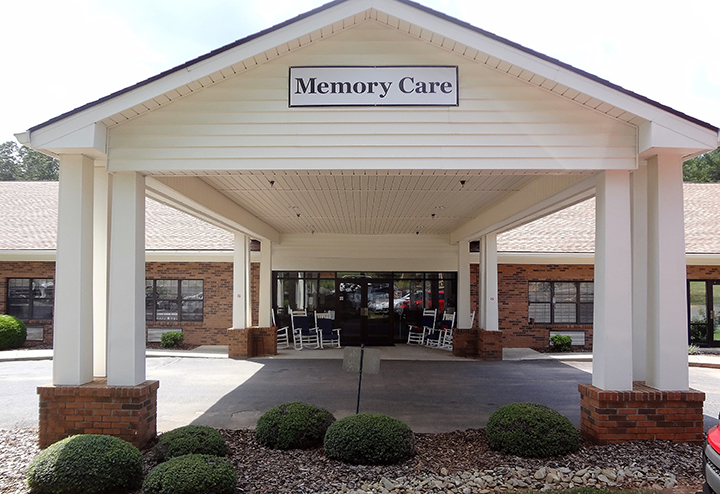Enhancing Quality of Life with Trusted Alzheimers Care Charlotte Programs
Enhancing Quality of Life with Trusted Alzheimers Care Charlotte Programs
Blog Article
Compassionate Alzheimer's Treatment for Your Liked Ones
Acknowledging the emotional and emotional needs of individuals influenced by this problem is critical in improving their top quality of life. As we check out the numerous approaches and techniques that can transform caregiving right into a much more caring experience, it ends up being clear that the journey is as much concerning the caretaker as it is regarding the specific with Alzheimer's.
Understanding Alzheimer's Condition
Alzheimer's condition is a modern neurodegenerative condition that primarily affects cognitive function, leading to memory loss, impaired reasoning, and changes in behavior. It is one of the most typical kind of mental deterioration, representing 60-80% of all cases. The disease usually materializes in people aged 65 and older, although early-onset Alzheimer's can take place in younger people.
The pathophysiology of Alzheimer's involves the accumulation of amyloid plaques and neurofibrillary tangles in the mind, causing neuronal deterioration and synaptic loss. These adjustments interfere with communication in between brain cells, gradually harming cognitive capabilities and daily performance. Early signs might consist of problem remembering current occasions and challenges in analytic, which can escalate to disorientation and problem with language.
As the illness advances, people might exhibit profound memory deficits, complication concerning time and location, and trouble recognizing loved ones. Behavior modifications, including frustration, anxiety, and withdrawal, may likewise take place. Understanding the professional progression of Alzheimer's is vital for caretakers and doctor, as it educates reliable administration techniques and interventions customized to the needs of individuals influenced by this devastating condition.
The Value of Compassionate Treatment
Compassionate care is essential in sustaining people with Alzheimer's condition, as it significantly boosts their top quality of life. This strategy prioritizes the emotional and emotional well-being of individuals, fostering an atmosphere that promotes regard, understanding, and self-respect. People with Alzheimer's usually experience disappointment, stress and anxiety, and complication, which can be reduced via compassionate interactions.
Empathy in caregiving not just aids in recognizing the special needs of each person however likewise reinforces the caregiver-patient connection. When caretakers approach their duties with concern, they develop a secure room where clients really feel valued and understood, which can minimize behavioral obstacles related to the disease. This encouraging environment motivates much better interaction and involvement, assisting in a much more reliable response to the care given.
Furthermore, caring treatment prolongs past the person; it also encompasses support for families. Caregivers who exercise compassion are more outfitted to attend to the emotional problem dealt with by enjoyed ones, supplying peace of mind and advice with a difficult journey. Inevitably, the significance of compassionate treatment hinges on its capacity to transform the caregiving experience, bring about improved end results for both people with Alzheimer's and their households.
Practical Caregiving Strategies
Reliable caregiving for individuals with Alzheimer's disease needs practical strategies that address the distinct obstacles posed by the problem. One of the foremost strategies is developing a regular everyday regimen, which can provide structure and knowledge, minimizing stress and anxiety for both the person and the caregiver. Caretakers should also streamline tasks by damaging them down into smaller, manageable steps, thus boosting the person's sense of achievement and minimizing disappointment.
Communication is one more important aspect; caregivers should utilize clear, easy language and preserve eye contact to cultivate understanding. Using visual cues, such as tags or pictures, can further help comprehension and navigating in the atmosphere.
Safety and security is extremely important. Adjusting the living area to remove hazards-- such as setting up or protecting rugs grab bars-- can help protect against accidents. Furthermore, caregivers ought to motivate self-reliance by enabling people to participate in familiar activities, which can strengthen self-esteem and advertise wellness.
Psychological Support Techniques
Psychological health is a critical component of look after individuals with Alzheimer's disease, as it straight impacts their high quality of life. Alzheimers Care Charlotte. Supplying psychological assistance techniques can substantially boost their everyday experiences and foster a complacency and belonging
One efficient method is energetic listening, which includes giving complete focus to the individual, recognizing their feelings, and reacting with empathy. This method assists the person really feel valued and comprehended, minimizing feelings of seclusion or aggravation. Additionally, using validation treatment can be useful; as opposed to remedying misconceptions, caregivers can verify the individual's experiences and feelings, promoting a soothing atmosphere.
Involving in memory therapy is another effective method, permitting individuals to share stories, sensations, and memories related to their past. This not only stimulates cognitive function yet also strengthens psychological links. Including familiar music or art can also stimulate favorable feelings and stimulate joyous interactions.
Moreover, making certain routine physical touch, such as holding hands or gentle hugs, can give comfort and peace of mind, enhancing emotional bonds. These techniques, when consistently used, can create a nurturing atmosphere that supports the psychological wellness of individuals with Alzheimer's, boosting their general health.
Developing a Supportive Setting

Firstly, think about the physical my explanation design of the living room. Clutter-free locations, familiar furnishings arrangements, and distinct pathways can reduce confusion and promote movement. Using relaxing shades and sufficient illumination can further improve the ambience, making it extra inviting and less intimidating.
Second of all, uniformity is critical. Keeping a predictable day-to-day routine aids people with Alzheimer's feel more safe. Acquainted tasks, regular see page dish times, and arranged social interactions can significantly minimize stress and anxiety and disorientation.
In addition, sensory elements play a crucial role. Including familiar aromas, music, and tactile objects can evoke favorable memories and promote engagement. Personalizing the space with treasured photographs and meaningful items can likewise cultivate a feeling of identity.
Conclusion
Caring Alzheimer's treatment considerably enhances the lifestyle for individuals impacted by this progressive condition. By focusing on emotional health and implementing effective caregiving techniques, caregivers can cultivate an environment that advertises self-respect and belonging. Techniques such as active listening and developing consistent routines serve to relieve anxiousness while strengthening the caregiver-patient connection. Inevitably, this strategy not only provides necessary comfort and support yet additionally empowers people to navigate the intricacies of Alzheimer's with self-respect and grace.
As we explore the various techniques and techniques that can transform caregiving right into a much more thoughtful experience, it ends up being clear that the trip is as much concerning the caretaker as it is about the private with Alzheimer's.

Compassionate treatment is vital in sustaining people with Alzheimer's disease, as it substantially boosts their quality of life - Alzheimers Care Charlotte. Inevitably, the importance of thoughtful treatment lies in its ability to change the caregiving experience, leading to boosted end results for both people with Alzheimer's and their households
Thoughtful Alzheimer's care dramatically improves the quality of life for people impacted by this dynamic condition.
Report this page